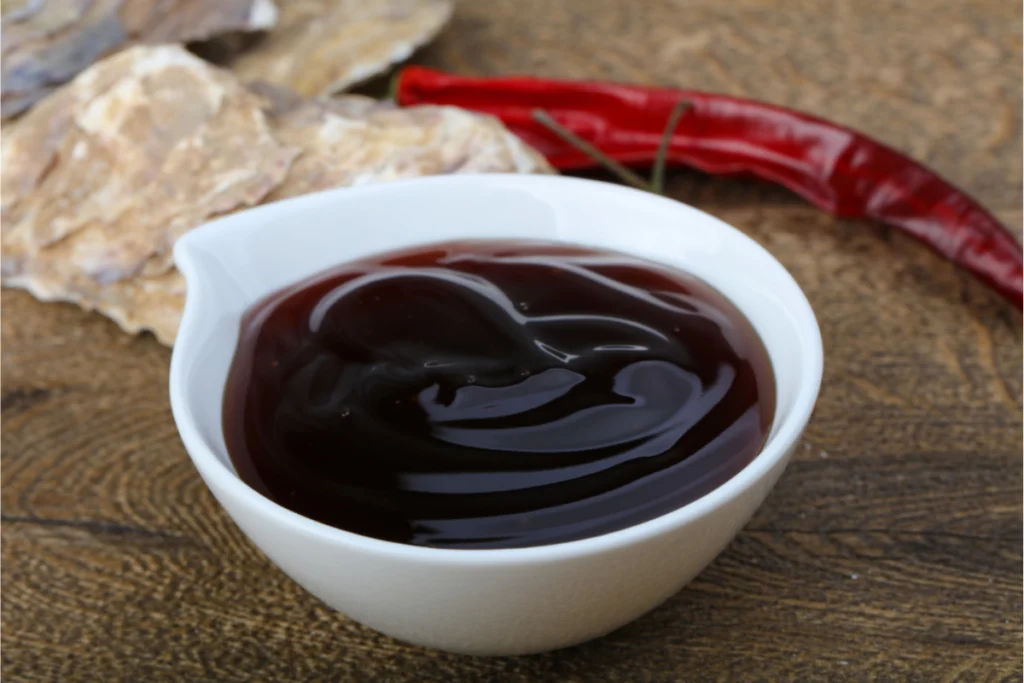
Ponzu sauce, with its unique blend of tangy, citrusy, and umami flavors, is a staple in Japanese cuisine. This versatile sauce enhances dishes as a marinade, dressing, or dipping sauce and has gained popularity worldwide for its bright and balanced taste. But for vegans, the question arises: is ponzu sauce vegan?
Traditional ponzu contains a few ingredients that may not be vegan-friendly. In this guide, we’ll explore everything from the common ingredients in ponzu, vegan alternatives, how to make homemade vegan ponzu, and some creative ways to use it in both traditional and fusion dishes.
If you’re interested in the core ingredients in ponzu, check out What is Ponzu Sauce Made Of? A Complete Guide for an in-depth look. For more about using ponzu across Japanese dishes, explore Everything You Need to Know About Ponzu Sauce.
What is Ponzu Sauce?
Ponzu sauce is a Japanese condiment known for its vibrant flavor profile that combines citrus and soy for a tangy and slightly sweet taste. It’s typically used as a dressing, marinade, or dipping sauce, and is especially popular with dishes like sashimi, grilled fish, dumplings, tofu, and various salads. Its versatility makes it a beloved addition in many Japanese and fusion cuisines.
Key Ingredients in Traditional Ponzu Sauce:
- Soy Sauce: Adds the salty, savory base.
- Citrus Juice: Often yuzu, lemon, or lime juice, which adds brightness and tang.
- Mirin or Sake: Brings a subtle sweetness and depth to the sauce.
- Rice Vinegar: Adds a gentle acidity.
- Katsuobushi (Bonito Flakes): The most crucial ingredient in question for vegans, as it is made from dried fish, lending an umami depth to the sauce.
This combination of flavors makes ponzu a sought-after addition to meals. However, the use of katsuobushi means traditional ponzu sauce is not vegan-friendly. To understand why katsuobushi is used in so many Japanese sauces, see Everything You Need to Know About Ponzu Sauce.
Why Traditional Ponzu Sauce May Not Be Vegan
Traditional ponzu sauce is often not vegan due to its inclusion of katsuobushi, also known as bonito flakes. This dried fish ingredient adds a rich umami flavor, but its fish origin renders traditional ponzu unsuitable for vegans. Let’s look closer at these ingredients.
What is Katsuobushi (Bonito Flakes)?
Katsuobushi, or bonito flakes, are a staple ingredient in Japanese cuisine. They are made from skipjack tuna, which is boiled, smoked, and fermented before being shaved into thin flakes. These flakes are prized for their umami flavor, which adds depth to dishes and sauces. However, since katsuobushi is a fish product, it’s incompatible with a vegan diet.
Potential Animal-Derived Additives in Ponzu Sauce
In addition to katsuobushi, some commercially available ponzu sauces may include other animal-derived ingredients, such as:
- Fish Extracts: Often added to enhance flavor, especially in bottled ponzu sauces.
- Gelatin: Occasionally used as a thickener or stabilizer, though less common in ponzu.
- Other Flavor Enhancers: Some brands may use various additives derived from animal sources to intensify the umami quality of their sauces.
Due to the prevalence of these ingredients, it’s important to read labels carefully to ensure that the ponzu sauce you’re buying aligns with vegan standards.
Ponzu vs. Ponzu Shoyu
Another aspect of confusion often arises between ponzu and ponzu shoyu. Ponzu shoyu is a variation that includes soy sauce, giving it a saltier flavor. While both can contain animal-based ingredients, ponzu shoyu is more likely to contain added seasonings, making it essential to double-check labels if you’re opting for store-bought versions.
Identifying Vegan-Friendly Ponzu Sauce: Tips for Shoppers
When looking for vegan ponzu sauce, keep these tips in mind to avoid animal-derived ingredients and ensure that your choice is vegan-friendly.
- Examine Ingredient Labels: Common non-vegan ingredients like bonito flakes, fish extract, and gelatin are often included, so it’s essential to read labels carefully.
- Seek Vegan-Certified Products: Some brands now offer vegan-certified ponzu sauce, which makes identifying safe options easier. Vegan certification on a label is a reliable indicator that the sauce is free from animal-derived ingredients.
- Opt for Homemade Alternatives: Making vegan ponzu at home gives you full control over the ingredients, ensuring it’s entirely plant-based and free from hidden animal products.
For those considering store-bought options, this guide on popular vegan ponzu sauce brands can help you identify reliable, plant-based products.
How to Make Vegan Ponzu Sauce at Home
Creating a vegan-friendly ponzu sauce at home is simple and allows you to capture all the traditional flavors without the use of animal products. Here’s a classic recipe to help you get started.
Key Ingredients for Vegan Ponzu
To mimic the rich umami of traditional ponzu without fish products, vegan ponzu relies on plant-based alternatives:
- Soy Sauce or Tamari: Tamari is often gluten-free, making it an excellent option for those with dietary restrictions.
- Citrus Juice: Yuzu juice is traditional, but lemon, lime, or a mix of citrus juices work well as alternatives.
- Kombu (Kelp): A type of seaweed, kombu is rich in glutamates and provides a similar umami flavor as bonito flakes.
- Dried Shiitake Mushrooms: These mushrooms add an earthy depth, replicating the umami quality of fish-based ingredients.
Vegan Ponzu Sauce Recipe
Here’s a simple recipe for vegan ponzu sauce, designed to recreate the traditional flavors with plant-based ingredients.
Ingredients:
- 1/2 cup soy sauce or tamari
- 1/4 cup fresh yuzu juice (or lemon juice)
- 1/4 cup rice vinegar
- 1 small piece kombu (about 2 inches)
- 2 dried shiitake mushrooms
- 1 tablespoon mirin (optional, for sweetness)
Instructions:
- Combine all ingredients in a jar or bottle and allow them to steep for 12-24 hours in the refrigerator. This steeping process infuses the sauce with rich flavors from the kombu and shiitake mushrooms.
- After steeping, remove the kombu and mushrooms.
- Stir the sauce well before using. It can be stored in the refrigerator for up to one week.
This homemade vegan ponzu sauce is ideal for various applications, from marinades to dressings, and maintains the bright, savory flavors of traditional ponzu.
Adjusting Vegan Ponzu for Dietary Preferences
For those with dietary restrictions or preferences, vegan ponzu sauce can be customized to meet specific needs.
- Gluten-Free: Substitute soy sauce with tamari, which is gluten-free and has a similar flavor profile.
- Low-Sodium: Opt for low-sodium soy sauce, or reduce the amount of soy sauce in the recipe to balance saltiness.
- Sugar-Free: Skip the mirin, or replace it with a natural sweetener like a few drops of maple syrup if desired.
Creative Uses for Vegan Ponzu Sauce
Vegan ponzu sauce is highly versatile, adding a flavorful boost to many dishes beyond traditional Japanese cuisine. Here are a few ideas:
- Dipping Sauce: Use as a dipping sauce for dumplings, gyoza, spring rolls, or even tempura.
- Salad Dressing: Drizzle over salads or use it as a dressing base for soba noodles or Asian-inspired salads.
- Marinade: The citrus and umami-rich flavors make vegan ponzu perfect for marinating tofu, tempeh, or vegetables. It tenderizes plant-based proteins while adding robust flavor.
- Fusion Dishes: Add vegan ponzu to grain bowls, roasted vegetables, or even pasta dishes for a unique twist.
For additional ideas on plant-based sauces that complement Japanese cuisine, see What to Use Instead of Soy Sauce.
Frequently Asked Questions About Ponzu Sauce and Vegan Options
Is ponzu sauce gluten-free?
- Ponzu sauce may not be gluten-free if it contains soy sauce. Tamari, a gluten-free soy sauce alternative, can be used to make a gluten-free version of vegan ponzu.
What can I substitute for ponzu sauce in vegan recipes?
- A mix of soy sauce or tamari, lemon juice, and a touch of rice vinegar can serve as a quick ponzu substitute. Adding kombu or mushrooms enhances the umami flavor, creating a similar taste profile.
How can I make vegan ponzu sauce at home?
- Combine soy sauce, citrus juice, rice vinegar, and umami-rich ingredients like kombu or shiitake mushrooms for a homemade vegan ponzu that captures the essence of traditional ponzu without animal products.
Is yuzu vegan-friendly?
- Yes, yuzu is a citrus fruit and is completely vegan-friendly. Its juice is commonly used in vegan and traditional ponzu sauces to add bright, tangy notes.
What’s the difference between soy sauce and ponzu sauce?
- Soy sauce offers a salty, savory flavor, while ponzu combines the saltiness of soy sauce with a citrusy tang. Ponzu is often used as a dipping sauce or dressing, while soy sauce is more versatile in cooking.
Conclusion: Enjoying Vegan Ponzu Sauce
For vegans and those seeking plant-based alternatives, making or finding a vegan version of ponzu sauce is a wonderful way to enjoy Japanese flavors without compromising on ethics or dietary preferences. Vegan ponzu maintains the tangy, umami-rich flavor of traditional ponzu while avoiding animal-derived ingredients. Whether you use it as a dipping sauce, marinade, or dressing, vegan ponzu offers a versatile, flavorful addition to countless dishes.
Experiment with the ingredients to personalize your own vegan ponzu sauce, and explore new ways to incorporate it into both Japanese and fusion recipes. With this guide, you’ll be well-equipped to enjoy the refreshing, balanced flavors of ponzu in a vegan-friendly way.
